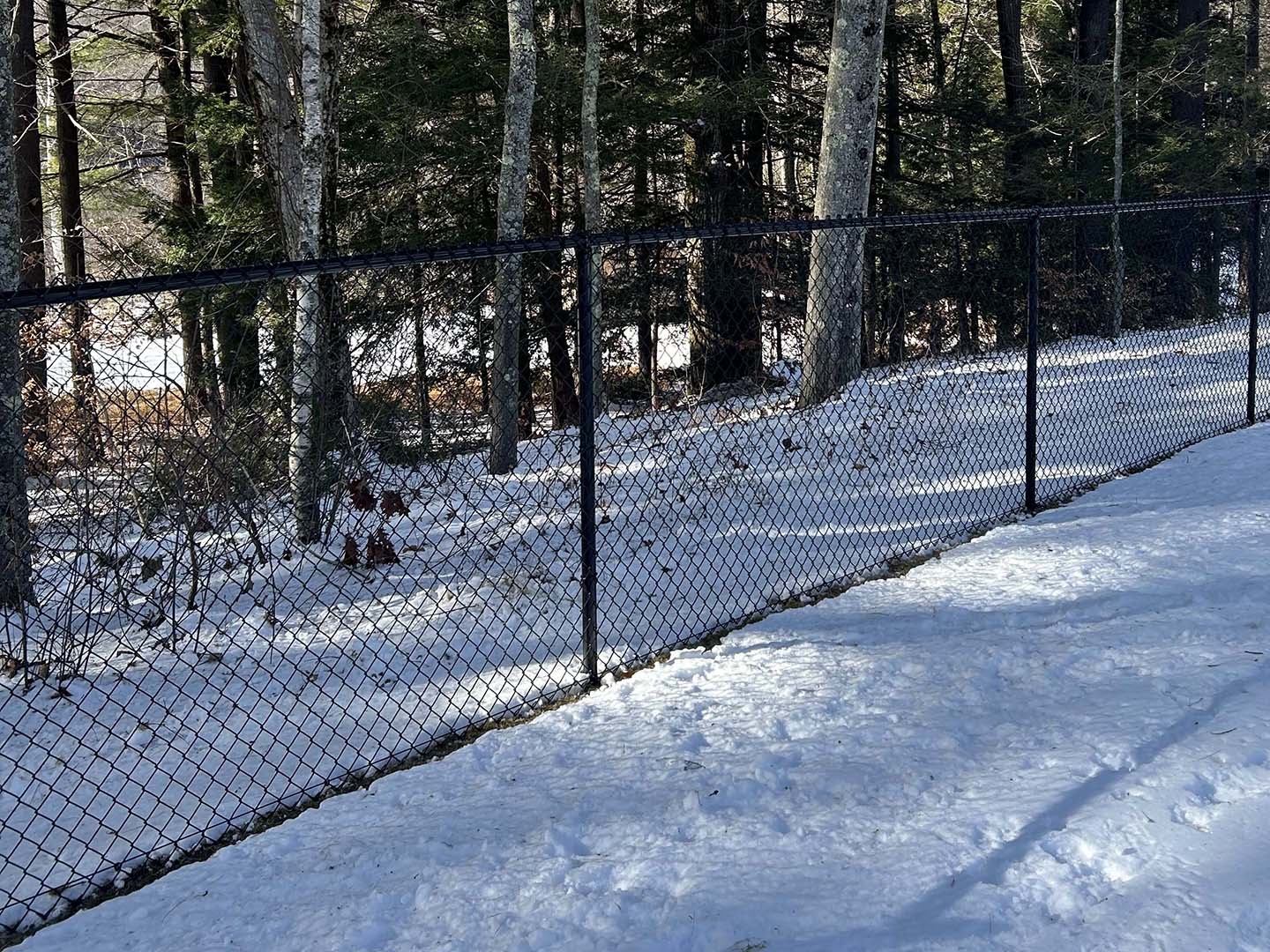When planning to install a New Hampshire residential fence on your property, one of the most important decisions you’ll make is selecting the right height. Fence height is key in achieving your goals, whether for privacy, security, curb appeal, or safety. The same principles apply to commercial fences.
At Stateline Fence, a Bedford, NH fence company, we understand this choice is important and are here to help guide you through every step! Our experienced team considers your goals, local rules, and budget to recommend the ideal height for your new fence.
Bedford, New Hampshire, Fence Regulations
Knowing local ordinances and neighborhood guidelines is essential before settling on a fence height. Fence regulations vary depending on the location and type of property.
For instance, residential fences often have different height limitations depending on the area. Front yard fences often have stricter height limits than backyard fences. Commercial properties may also face other restrictions based on their zoning and intended use.
Overlooking these rules can lead to costly mistakes, including fines or needing to modify or remove your fence. We’ll ensure your fence installation meets all requirements and avoids legal complications!
Different Purposes Call for Different Heights
Choosing the right height depends on what you want to achieve with your fence. A 4-foot-tall security fence wouldn’t benefit you, but if you’re aiming for a decorative touch that adds a clear boundary line, 4 feet is fine.
Here is a breakdown of standard fences and their typical heights.
Privacy Fences
Privacy fences offer seclusion and noise reduction, ideal for residential spaces where personal space matters. They block views with their solid panels and create a peaceful environment. Common materials include wood and vinyl for varying durability and upkeep.
Average Height: 6 to 8 feet
Purpose: To block views and create a secluded space, often used for backyards, patios, and pools.
Security Fences
Security fences deter unauthorized access and protect property, commonly used in commercial, industrial, and high-risk residential areas. Made from durable materials like aluminum or chain link, they balance strength, visibility, and security, often with added deterrents like barbed wire.
Average Height: 6 feet or taller
Purpose: To deter trespassing and increase safety around homes, businesses, or schools.
Pool Fences
Pool fences are safety barriers designed to prevent unsupervised access, especially by children and pets. Often required by law, they must meet specific height and latch standards. Aluminum is a common material for pool fences, offering a balance of safety, durability, and visibility while maintaining your yard’s curb appeal!
Average Height: Minimum 4 feet (per safety codes)
Purpose: To restrict access and help prevent accidents, especially for young children.
Boundary Fences
Boundary fences clearly define property lines and help prevent disputes between neighbors. While not always built for privacy or security, they establish ownership and can enhance curb appeal. Depending on the desired function and style, common materials include wood and vinyl fencing.
Average Height: 4 to 6 feet
Purpose: To define property lines and keep kids or pets safely contained.
Decorative Fences
Decorative fences enhance a property’s design appeal while providing light boundary definition. Often used in front yards or gardens, they come in various styles and materials, such as aluminum fencing, vinyl fencing, or wood fencing, to complement landscaping and architecture.
Average Height: 3 to 4 feet
Purpose: Adds charm and style to gardens or front yards without blocking the view.
Consider the Different Costs
Fence height also impacts the total project cost. Taller fences use more materials and often require deeper posts or more substantial supports, which can raise the price. It’s essential to weigh the benefits of added height against your overall budget.
If privacy is your top priority but you’re trying to stay within a specific price range, a 6-foot fence paired with landscaping can offer a practical, affordable solution.
Don’t Forget to Compare Materials
The material used in New Hampshire residential fences varies greatly, and some are better suited to your goals than others. Wood and vinyl are great for privacy fences, while chain link fences are often used for security. Of course, there are exceptions and unique cases, and we love to customize fencing solutions to give our customers everything they need at a price they can comfortably afford.
When exploring fence materials and height options, consider your final goal, desired maintenance level, and labor and installation costs. Ultimately, the type of fence you choose should balance your unique needs and budget.
Get Started With a Bedford, New Hampshire Fence Company
You deserve an expert who understands your fencing needs. At Stateline Fence, our team believes in being the best source for our customers in any situation.
Call us at (603) 259-4393 or contact us to schedule a free fence consultation to discuss your New Hampshire residential fence. No obligation, just easy answers to your questions!



